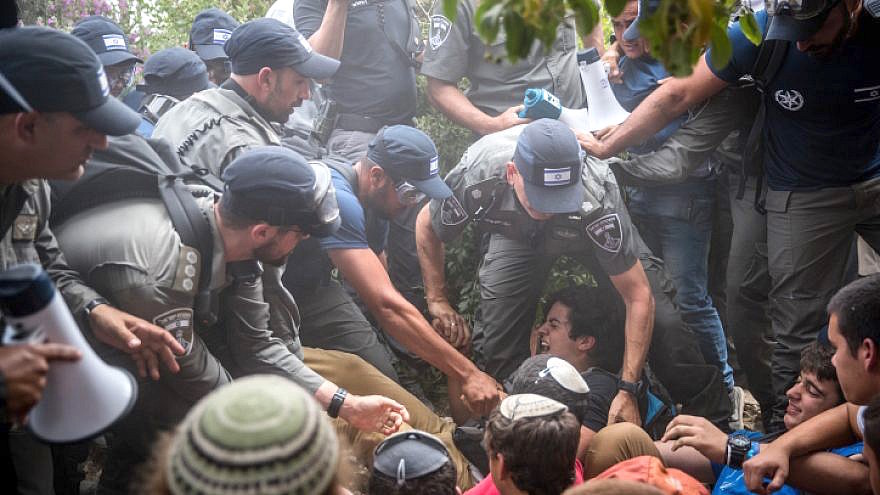In Netiv Ha’avot, the decision was lose-lose
Netiv Ha’avot means Path of the Forefathers. Until last week, it was a neighborhood of about 15 families in Gush Etzion, Israel. And then the families were evicted. The homes they built will be bulldozed.
Thousands of supporters came to be with the families on this painful day, yet other voices were conspicuously absent. Where were the human rights groups who mount battle cries when a terrorist’s bedroom is destroyed by Israel in response to his crime? Not that I compare these beautiful, upstanding Jewish families to terrorists, but it’s the principle: Where were the voices who justifiably raised a ruckus when the plight was that of a Bedouin tribe about to be uprooted? Their silence speaks volumes.
There is no Arab claimant in the Netiv Avot dispute. Its destruction is absolutely for nothing. No Arab is going to gain the land (because no owner was ever identified). The case was brought not by an Arab claimant but by third parties that seem to relish seeing Jews forced from their homes, cruelty for cruelty’s sake.
Yesh Din, one of those third parties, found bird’s-eye view photos from long ago that suggested that Netiv Avot had been built on a vineyard. Despite valiant efforts to identify a person linked with this land, none was found. Yesh Din’s theory has never been proven. The photos themselves cumulatively add up to a swath of land occupied by a bit of a house here, a corner of a house there, in piecemeal fashion. The families were willing to remove the corners of their houses in question. Yet the court ruled that the entirety of the homes must be destroyed. How it decided this is beyond me.
If the police were bracing for rage, violence and disobedience in response to this injustice and the pain of the families, the opposite unfolded. The families were nothing short of inspirational, dignified and restrained. In their pain, they modeled the depth of the words ashrei ha’am, “happy is the nation.”
To be forced into exile, in your own land, at the hand of your own government, for no rational reason, for no benefit to anyone, is devastating. Instead, these families taught us an even deeper commitment to Jewish values: of building, of brotherly love, of peace, of commitment, of dignity, despite the painful cost.
“The police are not our enemy; they are our brothers. They are simply carrying out their job and their duty.”
In one home, the elderly grandfather, Yitzchak Kopp, sat among the youth singing song after song, pulling at the heartstrings. Decades ago, he fought for the Gush Etzion bloc, guarding Jerusalem with his own body in the Six Day War and fighting to regain his lost home. On the family’s final walk out of their home, he was the one to unscrew the mezuzah from the lintel of his granddaughter’s home. Again, their home in Gush Etzion was lost.
With a large Israeli flag in one hand, and a mezuzah in the other, the last family of Netiv Avot walked out for the last time. After hours of singing and huddled dancing and tears, silence reigned.
This was “the last stand” of Netiv Avot, as Josh Hasten, the journalist who made this story public one year ago, so poignantly put it. This was “the last stand” of Jewish people, acting with nobility in the face of pain, of beautiful, dedicated families evicted from their homes with no one to gain.
Thankfully, no human life was lost, only inanimate wood and stone that made up the sanctuaries filled with love and memories.
As Laura Ben David, who joined Netiv Avot on that day, said: “As the families were evicted from their homes, they walked flanked by two lines of police and soldiers, who seemed to be standing in respect, and perhaps they were … but it felt eerily like seeing the mourner’s procession at a funeral … and in many ways it was.”
Copyright Intermountain Jewish News

 48.0°,
Partly Cloudy
48.0°,
Partly Cloudy 




